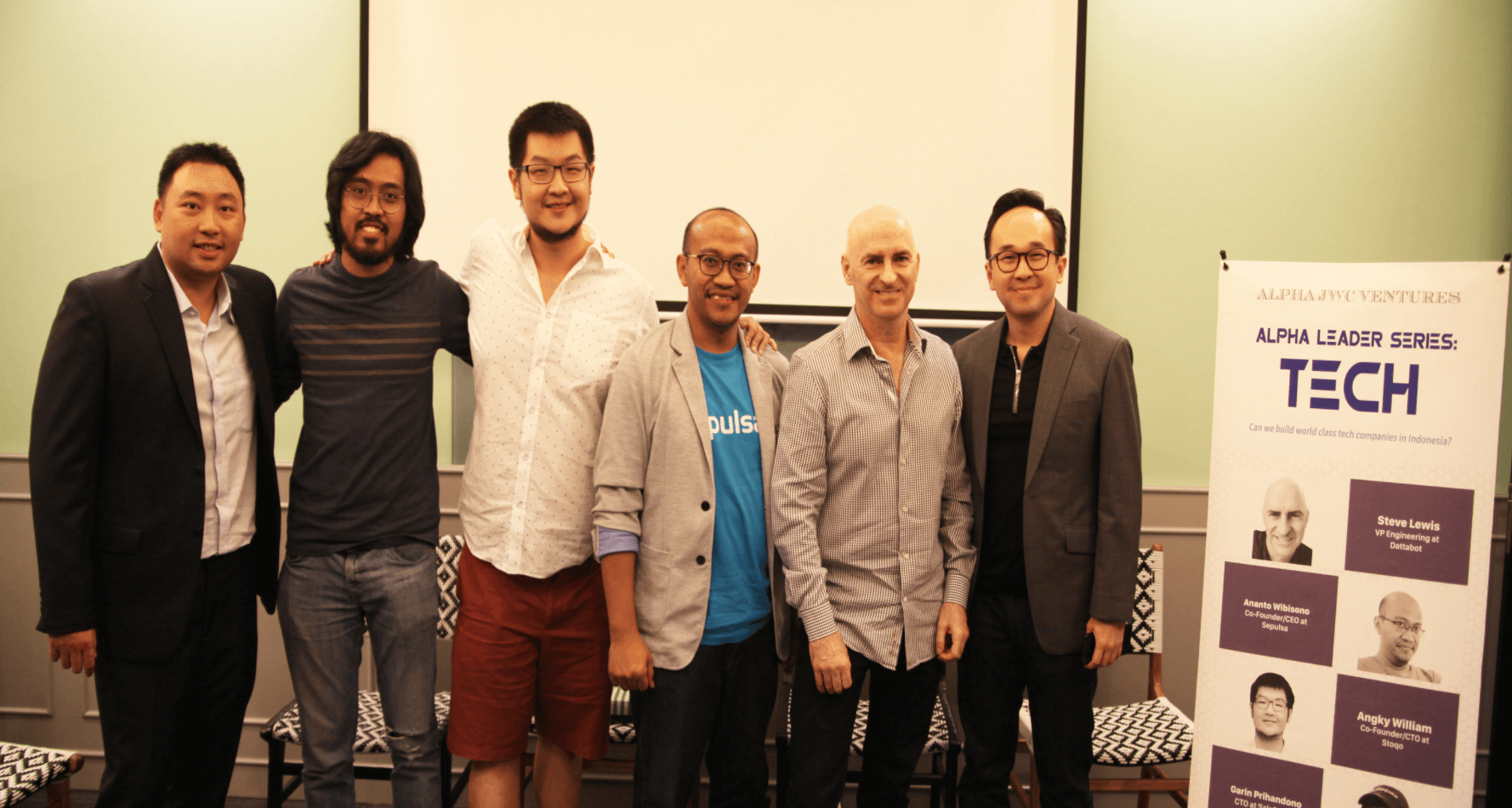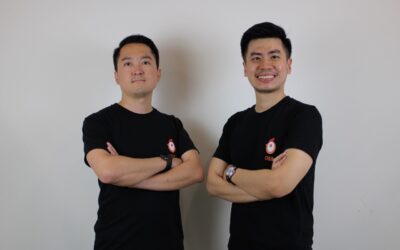More than sixty people gathered on Wednesday, Oct. 11, for Alpha JWC’s first installment of its Alpha Leader Series.
The series is part of the Alpha JWC’s role as the thought leader to build Indonesia’s start-up ecosystem. For the first event, Alpha JWC brought forward the topic ‘can we build world class tech companies in Indonesia?’.
At the event four tech leaders from Alpha JWC’s portfolio companies presented their insight about the market and technology advancement they have done in their respective companies.
Ananto Wibisono, the Chief Executive Officer of Sepulsa — Indonesia’s top online bill payment service and aggregator, shared his analysis of the change in tech culture in Indonesia.
“Before the start-up era, tech team was always a one-man show that had to fulfill request from everyone in the company. The team had to become programmer, system analyst, administrator, and even project manager. It was like there was only ‘one language’ to rule them all! But, they didn’t — or didn’t have to — understand the business side of the company they’re working at,” he said.
The current start-up era, according to Ananto, brings some changes. Now, tech teams fulfill requests from the project manager, and they have specific roles per person. The new generation is able to use various kinds of programming language, but often master none of them. But, they still don’t understand the business.
“So, that’s the challenge for tech companies: how they can and want to understand the business,” Ananto said. “Also, how they can spare time to improve their capabilities, have structured work style, take notes and then implement best practices. That’s what it takes to maximize tech people and create a strong culture.”
Garindra Prihandono, the Chief Technology Officer at Sale Stock Indonesia — Indonesia’s no. 1 women fashion e-commerce, took on the importance of increasing engineering productivity in a tech-based company such as Sale Stock.
Garindra explained that engineering productivity is an important aspect for Sale Stock as it is a vertically integrated company which builds its own software, yet does not hire a lot of developers.
“That’s why team members need to be capable. We give them great environment to work in and well-designed tools,” he said. “We provide options for them to work remotely, we provide skills development support, and we even have regular company hackathon.”
Tool-wise, Sale Stock implements a separation of engineering layer, uses shared code-base web and apps, and uses cloud/remote development machine to provide their developers the means to improve their skills and end-products.
The other two speakers weighed on implementing the best practices to Indonesian tech start-ups.
Steve Lewis, the VP of Product and Engineering at Dattabot — Indonesia’s leading data analytics company, shared how he brought his Silicon Valley experience to Dattabot.
Steve, who came to Southeast Asia for an adventure and its green field opportunities, elaborated the challenges he faced when he started working in Indonesia.
“There is a gap in tech talent in Indonesia and fierce competition for existing talent pool. In addition, tech talents in Indonesia don’t get exposed enough to critical thinking and there’s a lack of mechanism for shared learning.” he said.
Steve then shared about Dattabott’s effort to be better in the process, people, and tech, but he closed his session with an emphasis on cultural change that is needed the most.
“There should be a focus on customer and it is important to provide the team with an accelerated learning. Companies also need more positive reinforcement to motivate the team. Make it a great place to work, make the people energized and push them to learn cool new stuff. You can try by holding regular tech talks by team members to drive innovation. Then, we can talk about tooling up to win the market place.”
Angky William, the Chief Technology Officer at Stoqo — Indonesia’s pioneer marketplace + SaaS for F&B businesses, continued with his take on building a local tech team through an Amazon lens. After working at Amazon in Seattle, Angky moved to Indonesia to build Stoqo. As much as he wanted to implement Amazon’s proven successful values, Angky realized that not everything can be applied in Stoqo.
“So, we just make it the Stoqo way!”, he said with a laugh. Adapting Amazon’s values to local culture, Angky concluded that Stoqo’s day-to-day practices have to emphasize on building the right products. “We work with business team and customers, and automate tools to build the right products through customer validation, user profiling, and many more. We focus our limited resources in building maintenance-light solutions. We prepare as much off-the-shelf solutions as possible, we use few language and few frameworks, and we use resources with high community support,” he said.
Jefrey Joe, Alpha JWC’s Co-Founder and Managing Partner said “Our founders have extensive experience in their respective areas and there are a lot of great learnings that could be shared with key technology stakeholders in Indonesia. Alpha JWC family strive not only to create successful businesses in Indonesia, but also committed to build a stronger technology community in the region. Hence we will have this event regularly to help accellerate the growth of our ecosystem.”



